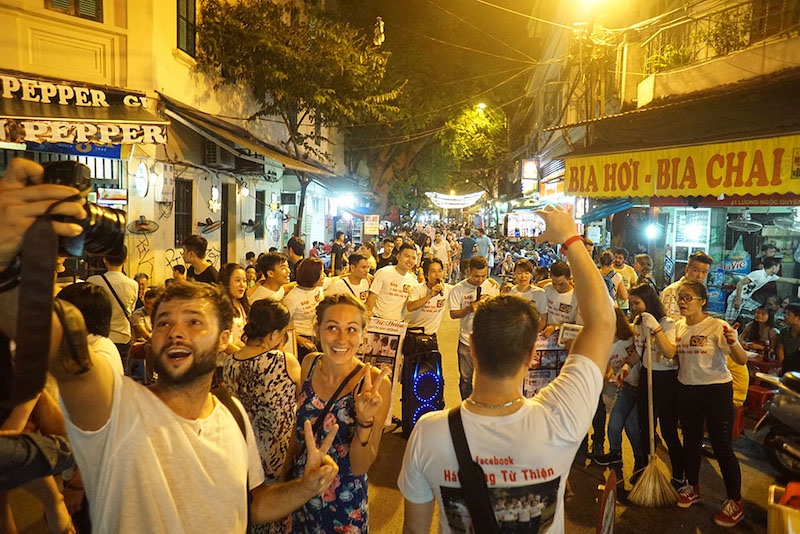In recent years, a growing number of foreign tourists visiting Vietnam have fallen victim to scams perpetrated by dishonest individuals.
These travelers have taken to social media to share their experiences and provide valuable advice on avoiding such pitfalls. One such incident involved Indian tourist Arnab, who encountered a local vendor near Ho Chi Minh City’s Reunification Palace four years ago.
Approached by the vendor, Arnab and his friend were offered coconut water. When Arnab inquired about the cost, the vendor insisted it was “free.” However, after much persistence, the vendor charged them VND300,000 ($12.87) for the coconuts, almost ten times the normal price. Unfamiliar with the exchange rate, Singh unknowingly paid the exorbitant amount, unaware of the vendor’s deception.
Unfortunately, this was not an isolated incident for Arnab. During a subsequent trip, he approached another local vendor to take photos with a coconut drink push cart. To his surprise, he was then asked to pay VND250,000. When he refused, the vendor began harassing him until he reluctantly paid to end the ordeal. Frustrated by these encounters, Singh took to social media, advising his friends to exercise caution and avoid interacting with strangers while traveling in Vietnam.

Kat Cammack, an Australian who had lived in Vietnam for three years, also shared his own cautionary tales of scams and warned others about the “tourist traps” in the country. Kat often fell prey to taxi scams, with drivers charging him double the meter fare. To mitigate such risks, he recommended using the Grab app upon arrival in Vietnam. Additionally, Kat advised relying on reputable taxi services such as Vinasun and Mai Linh, while cautioning tourists to inquire about fares before entering a taxi.
Having spent a year backpacking solo in Vietnam, American traveler Dean emphasized the importance of memorizing the exchange rate between USD and VND. He suggested that tourists remember $10 equates to approximately VND230,000 and $20 to around VND500,000, the largest denomination in the Vietnamese currency system. According to Dean, this knowledge helps prevent overpaying, such as when a vendor demands $10 for a bowl of Hue-style beef noodle soup (bun bo Hue), which is considered excessively expensive.
Miquel Angel, founder of MQL sustainable travel solutions company, highlighted the longstanding issue of tourist scams in Vietnam. He noted that when foreigners fall victim to scams, they share their stories with friends and relatives, dissuading many from returning to the country. Despite the tourism industry’s efforts to establish hotlines for feedback and complaints, most tourists find these hotlines ineffective.
Although Vietnam reopened its borders in March 2022, becoming one of the first Southeast Asian countries to fully embrace tourism, it has struggled to recover compared to its neighboring nations. In 2022, the country only welcomed 3.7 million foreign tourists, approximately 70% below its target. Industry insiders attribute this setback to weak law enforcement and insufficient penalties for fraudulent activities targeting visitors, such as deceptive pricing tactics.
In Vietnam, individuals found guilty of scamming tourists can face fines of up to VND10 million.
